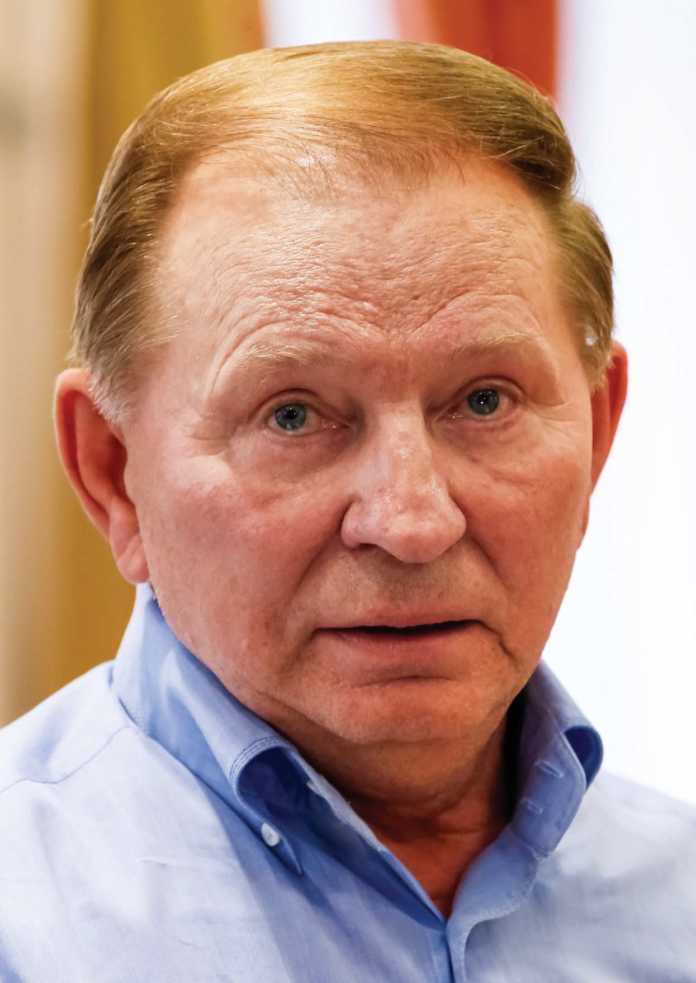Leonid Kuchma became the President of Ukraine on July 10, 1994. Before that he had managed to work as the Chairman of the Government of independent Ukraine. In the context of economic crisis of that time, that post was extremely neurotic and ungrateful. The presidency was even more neurotic and even more ungrateful.
It is very strange now to recall that cold civilian mini-war which preceded his election to the presidential post. He was considered (ultimately, not without reason) to be the man who had been longed for by so-called “red directorate”.
It concerned the heads and de facto the owners of the national heavy industry, which bore, as a life-buoy ring, all the national economy and did not let it go to the bottom. The oligarchs in the modern sense of the term did not exist, the directorate was considered (for some reason) to be incurably pro-Russian community. That is why the Ukrainian patriotic community saw a kind of national Lukashenko in Kuchma, and precisely because of that, it stubbornly and some what hysterically agitated for the first President.
In 2017, eventually, one can safely look around and confess that the Ukrainian patriotic community was wrong. And it was not just in the economy, though, when Kuchma accepted Ukraine “in bad condition”, only twenty percent of the national economy worked in closed-loop mode. Eighty percent did not exist beyond the co-operation with the country with which we are conducting an exhausting and brutal survival war now.
It was during Kuchma’s reign when the Ukrainian economy carried out so-called “capitalist revolution” or “great oligarchic coup”. It was during his reign when great national bourgeoisie appeared and declared itself, and which was recruited not only from the lines of the “red directorate” which brought Kuchma to power. The attitude of Ukrainian society to this bourgeois revolution remains very and very ambiguous, but due to tycoonization of the Ukrainian economy, it broke the connection with the Russian economy.
Though very slowly, but still inevitably. During the reign of Kuchma, the hryvnia was introduced and hyperinflation was stopped in the early 1990s. Such a step was also possible due to the fact that the wounded and injured Ukrainian economy plumped into predatory and, sometimes, bloody but still private hands. The President himself says about the introduction of the national currency:
– The introduction of the hryvnia should have promoted stabilization of the monetary system and turned it into a stimulating factor in the country’s economic and social development. And our expectations were fulfilled. Already in the second half of 1996 we managed to keep inflation in the projected parameters; since the first days of the reform the stable exchange rate of hryvnia to foreign currencies was maintained, the unshadowing of the circulation of money began, deposits and loans in the banking system increased… By the way, the reform itself was not confiscatory…
And there were good reasons for that: it was very important for us to get the population’s trust in the new national currency, policy of governance and economic reforms. It was necessary to maintain stability in the monetary, consumer and foreign exchange markets, as well as prevent speculative operations in exchange of coupon Karbovanets for hryvnia and prevent social tension in the society.

In domestic policy, the adoption of the Constitution and restraint of Crimean separatism should be included in the victories. On June 28, 1995, the Constitution of the Ukrainian SSR was abolished and, albeit not impeccable, nevertheless new (and not the worst) fundamental law of the state was implemented. For this purpose, the Verkhovna Rada of that time, where Communists and Socialists comprised the majority, had to be actually bent across the knee.
Crimean separatism of the 1990s was also bent across the knee. Nowadays when the peninsula is occupied, the memory of how skillfully and savagely Kuchma’s people took the Crimea of that time by a sensitive place is bound to be sad. It is equally sad to mention that it was Kuchma who defended the tiny island of Tuzla in the Kerch Strait in the autumn of 2003; at long last the current owners of Ukraine do not recall this. Although Kuchma himself somewhat diminishes both his role and the role of Ukrainian security officials in the Crimean operation of that time:
– Remember 1994–95: the referendum was held in the Crimea, they created their constitution, President Mieshkov — from Moscow, the government headed by Saburov — from Moscow. And only thanks to Yeltsin, who did not intervene and did not let all the rest of the Russians intervene, we solved all the problems ourselves.
However, the fact remains that the Crimea remained the part of our state. Until 2014. The so-called “multivector” was proclaimed in foreign policy, which some politicians even at that time called “geopolitical prostitution”. Obviously, in vain. That strong background, which current Ukrainian European integration has, was 1994 and 2004.
– The most important thing, for which I was criticized all the time, was multivector policy, but I hold this ground today too. Because living in the modern world and bowing only to one side, I mean a weak country maybe should try, as it is said, to be friends with everyone only on behalf of the own country — that is how Leonid Kuchma would remember that foreign policy model as far back as 2014.
Separately, it should be emphasized that at that time, the Ukrainian Foreign Policy Department was actively engaged in the creation of powerful political and economic pro-Ukrainian lobbies – in almost all key countries of the world. At the instigation of the second President a slogan of foreign policy economization was introduced, which in reality was reduced to the fact that Ukrainian business should firmly consolidate itself either in the market of Brazil, or Iran, or Indonesia, and actively contribute to the fact that this Brazil-Indonesia, if there is necessity in something, has to buy this “something” exactly in Ukraine.
Ukraine actively intervened in the internal Macedonian armed conflict in 2001. When the own Donbass emerged in this Balkan country in the form of armed demonstrations of the Albanian separatists, Kuchma’s Kyiv provided Macedonia with powerful armed assistance that, in fact, made the defeat of the armed Albanian movement possible. But we would be biased and not sincere if we did not mention the black side of Leonid Kuchma’s reign. The massive capitalization of the Ukrainian economy led to the emergence of such a sad factor as the market of political services, which triggered a rapid penetration of those who are customary called the criminal bourgeoisie or, more simply, the “brothers’ circle”, to the government institutions.
Kuchma and his “court” found a common language with that folk perfectly, especially after 2000 and still not uspelled and not properly interpreted Gongadze case. And it is thanks to this fatal to Ukraine mutual understanding, the door to the Olympus of Ukrainian authorities was opened for Donetsk criminal group, known in the mining capital as “Lux” or “Botanical Garden”. Rinat Akhmetov and Viktor Yanukovych belonged to the leadership of this group. The last one, thanks to the mentioned collaboration, at first became the Head of the Donetsk Oblast State Administration, in 2003 – the Head of the Ukrainian government and a candidate from the pro-government forces for the post of the President of Ukraine.
But that is a completely different story…













